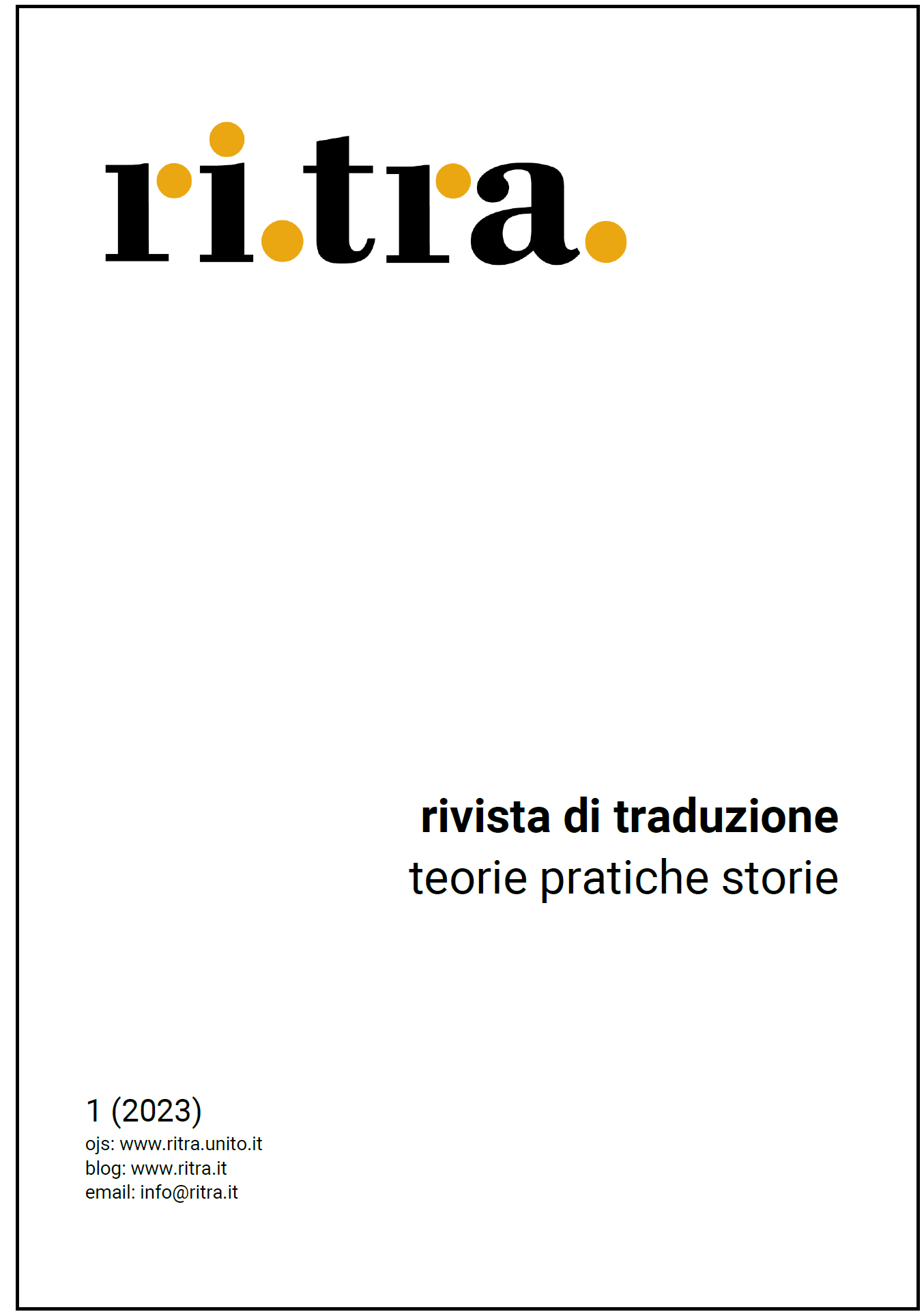Un frammento sul fiume
Il 'Kubla Khan' di Coleridge in Italia
DOI:
https://doi.org/10.13135/2975-0873/8317Parole chiave:
Samuel Taylor Coleridge, Kubla Khan, Translations, History of translation in Italy, PoeticsAbstract
Il Kubla Khan di Coleridge è un esempio di testo poetico che presenta infinite difficoltà al traduttore sia per la sua natura di frammento onirico sia per l’incredibile intreccio metrico, fonetico e ritmico che lo caratterizza. Ripercorrere la fortuna del testo in Italia è un modo non solo per vedere come il testo si è risignificato nelle varie versioni e nelle varie prospettive interpretative dei traduttori, poeti, studiosi che si sono cimentatati nella sua versione, ma anche per ripercorrere le variazioni del gusto poetico e dell’idea di poesia della cultura italiana nel tempo. Dopo una breve premessa sulla fortuna di Coleridge in Italia e un’analisi della composizione, il saggio considera alcune traduzioni a partire da quelle di Mario Praz (1925), Maria Luisa Cervini (1931), Mario Luzi (1948), a quella di Marcello Pagnini (1988) che segnala la fondamentale importanza della premessa in prosa di Coleridge del frammento come parte integrale della composizione, fino alla recente versione di Edoardo Zuccato (2018).
Parole chiave: Samuel Taylor Coleridge, Kubla Khan, Traduzioni, Storia della traduzione in Italia, Poetiche.
Coleridge’s Kubla Khan is a poem that poses a great number of problems for translators both for its nature as an oneiric fragment and for its incredible braiding of metrical, phonetic and rhythmic motives and techniques. Studying the reception of the text in Italy is a way not only to see how the text has acquired different meanings in the various versions and interpretative perspectives of the translators, poets, and scholars, but also to trace the variations in the concept of poetry and poetic taste in Italian culture over time. After an introduction tracking Coleridge’s fortune in Italy and a brief analysis of the source text, the essay considers a number of translations, from the renditions by Mario Praz (1925), Maria Luisa Cervini (1931) and Mario Luzi (1948), to the translation by Marcello Pagnini (1988) – who points out the fundamental importance of Coleridge’s prose premise of the poem as an integral part of the composition – and the recent version by Edoardo Zuccato (2018).
Keywords: Samuel Taylor Coleridge, Kubla Khan, Translations, History of translation in Italy, Poetics.








